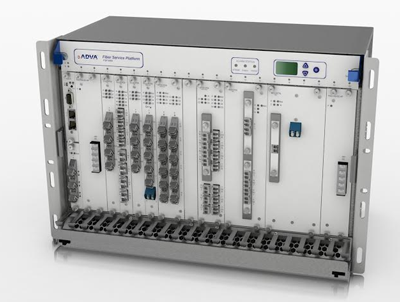A new industry consortium, including Arista Networks, Broadcom, Google, Mellanox Technologies, and Microsoft, announced the availability of a specification optimized to allow data center networks to run over a 25 or 50 Gigabit per second (Gbps) Ethernet link protocol. The specification prescribes a single-lane 25 Gbps Ethernet and dual-lane 50 Gbps Ethernet link protocol, enabling up to 2.5X higher performance per physical lane or twinax copper wire between the rack endpoint and switch compared to current 10 Gbps and 40 Gbps Ethernet links. The new specification is being made available royalty-free by the Consortium members to any data center ecosystem vendor or consumer who joins the Consortium.
The 25 Gigabit Ethernet Consortium said its mission is to support an industry-standard, interoperable Ethernet specification that boosts the performance and slashes the interconnect cost per Gbps between the server Network Interface Controller (NIC) and Top-of-Rack (ToR) switch. The new specification covers 25 Gbps and 50 Gbps Ethernet physical layer (PHY) and media access control layer (MAC) behavior, including virtual lane alignment, autonegotiation, and forward error correction characteristics.
“We believe that 25 and 50 Gigabit Ethernet (GbE) serves a focused market requirement for next-generation, performance and cost optimized server- and storage-to-switch interconnects and are proud to be a key contributor to the Consortium’s 25 and 50 GbE specification," stated Rochan Sankar, Product Marketing Director, Infrastructure and Networking Group, Broadcom.
“The companies joining the 25 Gigabit Ethernet Consortium are taking a major step forward in increasing the performance of data center networks,” said Anshul Sadana, Senior Vice President, Customer Engineering, Arista Networks. “With ever-increasing server performance and with the uplinks from the leaf to the spine layer migrating to 100 Gbps in the near future, it makes sense to increase the access speed from 10 Gbps to 25 and 50 Gbps.”
http://www.25GEthernet.org
The 25 Gigabit Ethernet Consortium said its mission is to support an industry-standard, interoperable Ethernet specification that boosts the performance and slashes the interconnect cost per Gbps between the server Network Interface Controller (NIC) and Top-of-Rack (ToR) switch. The new specification covers 25 Gbps and 50 Gbps Ethernet physical layer (PHY) and media access control layer (MAC) behavior, including virtual lane alignment, autonegotiation, and forward error correction characteristics.
“We believe that 25 and 50 Gigabit Ethernet (GbE) serves a focused market requirement for next-generation, performance and cost optimized server- and storage-to-switch interconnects and are proud to be a key contributor to the Consortium’s 25 and 50 GbE specification," stated Rochan Sankar, Product Marketing Director, Infrastructure and Networking Group, Broadcom.
“The companies joining the 25 Gigabit Ethernet Consortium are taking a major step forward in increasing the performance of data center networks,” said Anshul Sadana, Senior Vice President, Customer Engineering, Arista Networks. “With ever-increasing server performance and with the uplinks from the leaf to the spine layer migrating to 100 Gbps in the near future, it makes sense to increase the access speed from 10 Gbps to 25 and 50 Gbps.”
http://www.25GEthernet.org


















